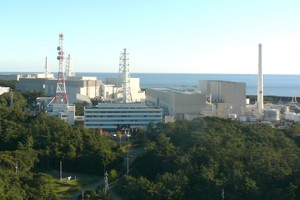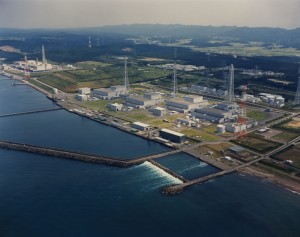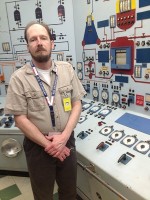Japan Nuclear Restarts: Abe Says "Will See To It," Courts Differ, Plants Prepare
 "I will see to it by some means or other. I will properly deal with it." So go the reported words of Japanese Prime Minister Shinzo Abe regarding the restart of nuclear power plants in Japan, as printed recently in the Japanese press. At the present time, while the Japanese government and courts seem to be at odds on restarting plants-with the public left in the middle-those at the nuclear plants themselves must count on eventual approval to restart and must ensure required measures are completed properly. Those preparing for restart continue to work toward that end while facing an improving, but not yet by any means certain, situation in the public and legal arenas.
"I will see to it by some means or other. I will properly deal with it." So go the reported words of Japanese Prime Minister Shinzo Abe regarding the restart of nuclear power plants in Japan, as printed recently in the Japanese press. At the present time, while the Japanese government and courts seem to be at odds on restarting plants-with the public left in the middle-those at the nuclear plants themselves must count on eventual approval to restart and must ensure required measures are completed properly. Those preparing for restart continue to work toward that end while facing an improving, but not yet by any means certain, situation in the public and legal arenas.
Abe says yes, court says no
Those wishing for nuclear plant restarts in Japan, and especially power companies and large manufacturers (which consider their businesses in great peril), were bolstered by the continued support for nuclear restarts expressed by Abe, although it's now becoming clear that a one-man fight isn't what lies ahead. Abe's recent statement, specifically about Sendai Nuclear Power Plant (NPP), comes on the heels of a public presentation to the Prime Minister of produce from the governor of Fukushima Prefecture-a sure sign that life indeed continues in the prefecture. That rosy picture of recovery stands opposed by courts, however.
Just last May, the Fukui Court issued an order to Kansai Electric barring the restart of reactors at the Oi NPP. The language of the order has more recently been translated into English, and the finding is troubling-the court basically saying that no person or establishment is capable of predicting the maximum severity and effect of prospective natural disasters; and that since the people of Japan generally derive their welfare and well-being from the land, it can be ruled illegal to operate nuclear plants that could in theory lead to the loss of the land and well-being of the people.
Residents in the immediate vicinity of Sendai NPP in Kagoshima Prefecture were this week issued iodine pills as part of a disaster preparedness plan, along with access to pharmacists who could answer questions, according to NHK World. One resident interviewed said that he indeed felt better because of this "ounce of prevention" approach. In some regions, public opinion appears to sway toward the return of nuclear energy, as utilities and prefectural governments make advance preparations and keep the public "in the loop."
Preparing by building and training
 As scenes of quite public debate continue, the utilities meanwhile have long recognized the need to restart their nuclear plants, if at all possible, to begin to recoup some of the massive losses they're incurring-as a result of having to buy large amounts of fossil fuel and having to build temporary fossil-fired power plants to make up for the loss of generation from nuclear plants. And lest there be any doubt, overall power generation is still far, far short of what it had been with all nuclear plants available.
As scenes of quite public debate continue, the utilities meanwhile have long recognized the need to restart their nuclear plants, if at all possible, to begin to recoup some of the massive losses they're incurring-as a result of having to buy large amounts of fossil fuel and having to build temporary fossil-fired power plants to make up for the loss of generation from nuclear plants. And lest there be any doubt, overall power generation is still far, far short of what it had been with all nuclear plants available.
Some plants have experienced setbacks. This week, Shikoku Electric Power Company announed that its Ikata NPP would delay restarting by up to a year because its on-site emergency control center didn't meet required revised seismic standards.
Others continue apace. We've reported here on the massive amount of time and money that Tokyo Electric Power Company (owner of Fukushima Daiichi) has put into its Kashiwazaki-Kariwa nuclear plant on the opposite coast of Japan; these safety measures continue with further massive construction. A recently published video displays the continued wide effort underway to meet all the required precautions and standards, and is worth viewing in its entirety for anyone interested in the preparations at nuclear plants in Japan:
Click here to watch the TEPCO Kashiwazaki-Kariwa video
Japan's Nuclear Regulation Authority (NRA) released a report stating that the triggering event for the Fukushima Daiichi nuclear accident was in fact the tsunami, and not the earthquake itself, lending support to safety actions taken at Kashiwazaki-Kariwa and other nuclear plant sites around Japan (including Chubu Electric's Hamaoka NPP and Kyushu Electric Power's Genkai and Sendai NPP's) in the sense that the majority of expenditure lies in prevention of damaging effects from tsunami. A previous Japanese government panel had implicated the quake as the cause, but the NRA's investigation has resulted in little or no evidence that the quake itself caused any damage to the plants that would have led to core melt. For example, the summary of the NRA report states that any small leaks caused by the quake would not have caused a threat to core integrity within 10 hours, and that there were no detectable signs of any serious breach of primary plant integrity during the time between the quake and the arrival of the tsunami.
It seems assured now-given the work required, the recent court position, and the overall sensitivity of the issue-that none of the nuclear plants in Japan will restart before autumn. As that original hope slips, the public and industry continue to forge a new understanding of the importance of safety in the Japanese nuclear power industry.
For more information:
Nuclear Regulation Authority (Japan) - Overview of Regulatory Requirements
_______________________
 Will Davis is the Communications Director for the N/S Savannah Association, Inc. where he also serves as historian and as a member of the board of directors. Davis has recently been engaged by the Global America Business Institute as a consultant. He is also a consultant to, and writer for, the American Nuclear Society; an active ANS member, he is serving on the ANS Communications Committee 2013-2016. In addition, he is a contributing author for Fuel Cycle Week, and writes his own popular blog Atomic Power Review. Davis is a former US Navy reactor operator, qualified on S8G and S5W plants.
Will Davis is the Communications Director for the N/S Savannah Association, Inc. where he also serves as historian and as a member of the board of directors. Davis has recently been engaged by the Global America Business Institute as a consultant. He is also a consultant to, and writer for, the American Nuclear Society; an active ANS member, he is serving on the ANS Communications Committee 2013-2016. In addition, he is a contributing author for Fuel Cycle Week, and writes his own popular blog Atomic Power Review. Davis is a former US Navy reactor operator, qualified on S8G and S5W plants.





.jpg)
.jpg)